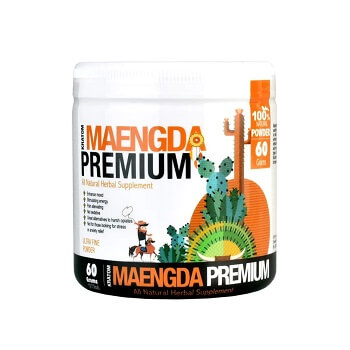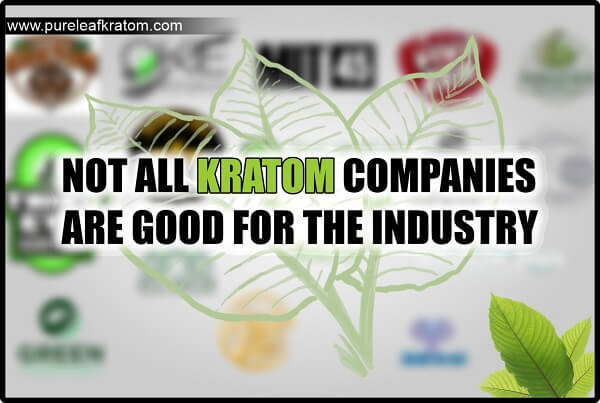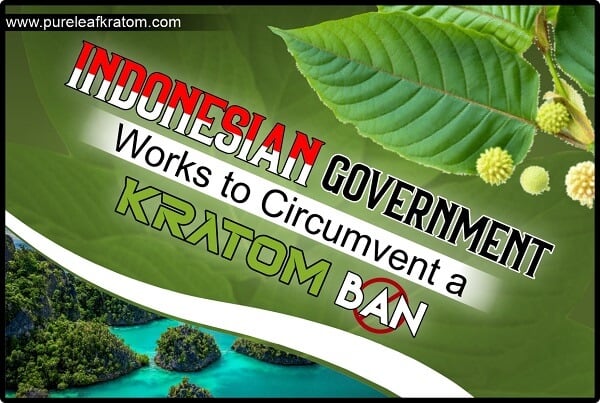- Announcements
- Features
- Kratom Buying Guide
- References
- Reviews
- Tips
- Kratom
- Kava
- Delta
- Mushrooms
- Knowledge

Kratom Bans And Strict Laws: The Future Of Kratom Is Uncertain
 Asad Khan
Kratom Buying Guide | References | Reviews
Asad Khan
Kratom Buying Guide | References | Reviews
01/31/2023 12:13pm
7 minute read
After every few months, a new wave of bad press and negative reports makes Mitragyna consumers suspect that there might be a Kratom ban. This wave doesn’t only cause ambiguity but also makes consumers hoard Mitragyna stock, and some vendors might even take advantage of the panic to sell Ketum at higher prices!
Moreover, the protests against the reports flare up in all the states where Mitragyna is readily available. However, these false alarms die down soon enough and there is no change except a few consumers end up with a big bag of kratom at a higher price.
Kratom is a natural stimulant and for many years people in America have been using it for energy and increased focus, but due to the FDA and DEAs antagonistic views on this substance, the status of Kratom has been in question.
Since the early 2000s, there have been various times when the efficacy of Mitragyna has been questioned due to a lack of scientific study. In 2016 and 2018 a salmonella outbreak resulted in the DEA asking the federal government to ban this substance. The FDA does not regulate Ketum products and that is another problem. However, does this mean that the future of Kratom is uncertain? Let’s find out.

Click Here To Buy Premium Quality Maeng Da Kratom Powder Extra Strength Online
The Legal Status Of Kratom In America
The federal government allows the use of Kratom in the country. This means that users can buy this substance from various online and local smoke shops in the country. However, some states have banned this substance even today. These states follow their stringent rules regarding various herbal substances, and there have been many times that their laws have changed. However, there are only three or four states and a few cities that do not allow the use of Kratom.
In all other states, Kratom is allowed and easily available. However, whenever a tragic or unpleasant incident takes place, there is a disturbance among consumers who are not sure what could happen next.
Indonesian Government Ban Poses A Threat To Kratom In America
In 2017, a ban on Kratom cultivation was declared in Indonesia. This ban was due to the farmers’ preference for growing Mitragyna and exporting it. The profit on this cash crop is more than many other crops that have gradually reduced in the country. However, this ban was to be imposed in 2022 but has been postponed till 2024.
The Indonesian ban has created an opportunity for other Ketum growers in Thailand and Malaysia to pick up production to meet the supply gap created by the Indonesian production for Mitragyna. The ban from the Indonesian government is not due to any health risks. It is due to the reduction in the production of other crops. However, this ban can cause some problems in America as well.
The future of Kratom can be impacted by the Indonesian Kratom ban. The reason is that if the Bali and Indo variations are not available, some of the vendors can try and benefit from the situation by selling any other strain as an Indo or Bali kratom. This may lead to the unethical practice of forging labels and misleading customers through false laboratory tests.
Moreover, some vendors may hoard Bali and Indo Kratom variants to sell when these strains are not available anywhere.
This practice may lead to some stale and contaminated products being on sale. Consumers who do not want to suffer poor side effects might find it hard to resist the rare variations and if they fall into the trap, it may be risky for their health.
There have been rumors that the DEA and FDA along with the health department have pushed the Indonesian government to ban Kratom production. If this is true, it can mean that there can be a movement to ban this substance in the country soon.
The Role Of AKA And The Future Of Kratom In America
The only hope that all Mitragyna consumers in America have is from the American Kratom Association, which not only educates people about the effects of kratom but also advocates the rights of consumers in America. The AKA has helped many states implement Kratom Consumer Act, and also keeps a check on ethical consumerism by online shops. This association can play a pivotal role in making the future of Kratom brighter.
The AKA can ensure that people understand the effects of this botanical by trying it out from reliable sources. Moreover, it can help consumers select the best shops so that they experience the effects that suit them. The AKA has a slight influence on lawmakers and public offices as it logically puts forward the uses, and results of this organic item.
In America, this association has done a lot of things to improve the image of Ketum although there have been numerous reports and misconceived reviews that caused many potential consumers to step back from trying out any Mitragyna strain.
Is It Possible That Mitragyna Gets Banned In America?
Let’s say that the federal government can ban Ketum. However, that will only be possible if numerous incidents and tragic results cause the DEA to overcome the government’s decision to allow this herb. As there are millions of Mitragyna users in America, and many online shops have set up stable, and wide customer bases, it does not seem like there is any chance of a nationwide ban.
The maximum that can happen is that some of the states impose the Kratom Consumer Act, which is a good thing because you will be able to buy potent, and authentic products. If consumers keep sharing positive reviews and allow new users to gain confidence in this substance, there might not be any reason for the authorities t ban this botanical.
Will Any Change In Indonesian Kratom Supply Lead To A Ban In America?
Kratom is not approved by the FDA and the DEA is constantly trying to get it banned. Many people say that the ban in Indonesia is also backed by the health and food authorities in America. If a ban is imposed on Indonesia for Kratom production, it can create some production issues in America. These issues are related to the numerous strains that come from Indonesia. Imagine if these substances are not being imported, the vendors will try and imitate the impact of all Bali and Indo strains by mixing other Mitragyna strains.
If these new kinds of kratom blends are not well-received by consumers, it can cause many consumers to post negative reviews, and these result in potential users dismissing the idea of using Kratom. A change in people’s experiences and the general opinion created about kratom can alter the way authorities see it from the consumers’ point of view. If the DEA tries to use this change of consumer opinions, it may impact the legal status of Kratom in various states.
How Do American Authorities Contribute To The Future Of Kratom?
When we say that the future of Kratom is uncertain, it does not mean that there can be a ban only. It may also mean that this botanical can be 100% legal in all states! The American authorities have understood that it is not easy to ban Ketum, and they might be waiting for bad reviews or any unpleasant event to blame Mitragyna and shun it. However, so far nothing of this kind has become possible.
This is why the law enforcement authorities rely on people’s decisions and the AKA is also actively doing its best to keep Mitragyna free from bad press. By now, it is clear that the only way this substance can be banned is if the consumers change their minds and the kratom sales drop to the extent that the DEA can prove its point that this herb is not appropriate for use.

Related Articles

Beware: Not All kratom Companies Are Good For The Industry
7 minute read
01/31/2023 12:15pm

What Is The Canadian Kratom Industry Like? The Regulations, Laws And Options
7 minute read
01/31/2023 12:12pm

Future of Kratom As The Indonesian Government Works To Circumvent A Kratom Ban
7 minute read
01/31/2023 12:00pm
